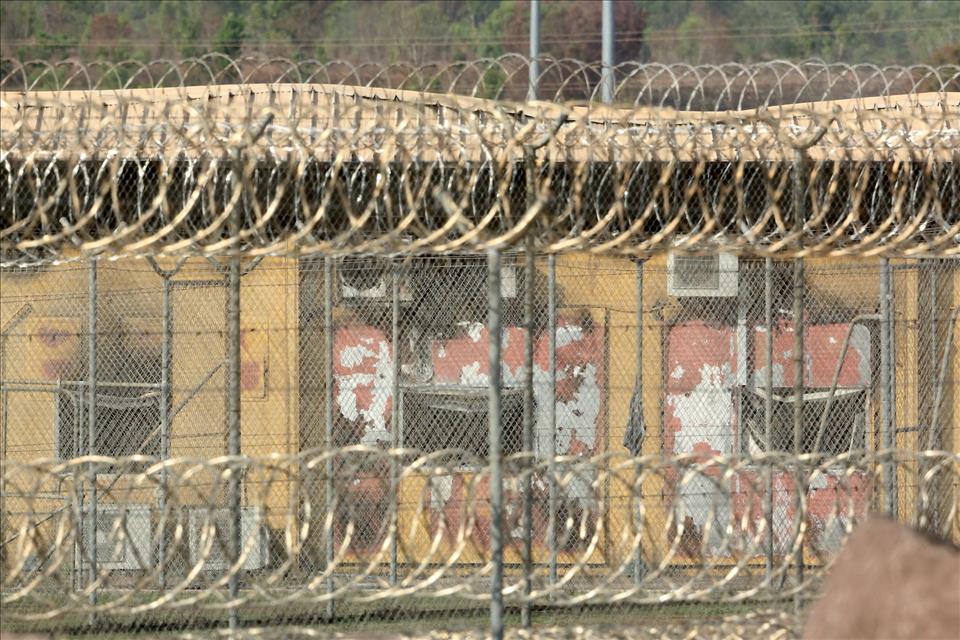(MENAFN- The Conversation) Aboriginal and Torres Strait Islander people are warned this article mentions violence towards and death of First Nations people.
According to the most recent statistics from 2020–21, 640 children and 42,090 adults were detained each day across Australia. Of those, 337 children and 12,599 adults were Aboriginal and/or Torres Strait Islander people.
Some people in Australian prisons and police stations are being subjected to treatment that could amount to torture. This includes prolonged solitary confinement and the use of spit hoods . Last year, the un committee against torture recommended Australia end the use of spit hoods and prohibit solitary confinement of children.
Torture has been criminalised in commonwealth legislation , but not at the state and territory level (with some exceptions ). This is despite a recommendation from the UN Committee Against Torture.
While progress on criminalising torture across states and territories has stagnated, attorneys-general around the country have so far only agreed to look into the“feasability” of a national ban on spit hoods.
prohibiting the solitary confinement of children in detention centres is proving to be an even slower process.
The harms of solitary confinement
Torture has a very specific legal meaning under international law . It is defined as“any act by which severe pain or suffering, whether physical or mental, is intentionally inflicted” for the purposes of obtaining information or a confession, punishment, intimidation or coercion, or based on discrimination. This act is done by someone acting in an official capacity, or with their consent.
Prolonged solitary confinement can fall under this definition. It is specifically defined under the un mandela rules on the treatment of people in prison as“confinement [...] for 22 hours or more a day without meaningful human contact” for more than 15 consecutive days.
solitary confinement of detained children and adults with“mental or physical disabilities when their conditions would be exacerbated by such measures” is also prohibited under the rules.
Solitary confinement has been proven to cause long-term harm such as anxiety, depression, cognitive disturbances, paranoia and psychosis.
In 2018, Human Rights Watch reported on the use of prolonged solitary confinement in western australia , where a woman with a disability was held in solitary confinement for 28 days. Solitary confinement was also used in Australian prisons and youth detention during the pandemic , ostensibly to prevent the spread of COVID.
Solitary confinement in detention centres continues to be used across Australia. It has been used on children in Western Australia despite a court finding the use of lockdowns unlawful . It has also been used on children with disabilities in the Northern Territory.
There have also been reports of an Aboriginal boy with a disability being kept in extended isolation in Queensland's cleveland youth detention centre , likely spending 500 days confined to his room for more than 20 hours a day.
He has reportedly received no treatment because the detention service lacks the capacity to treat people with trauma-related mental health issues.
Torture is a crime and needs to be properly investigated and punished
criminalising torture at the state and territory level can increase understanding of what actually constitutes torture among prosecutors, prison authorities and police. This can help deter torture and other unlawful practices against people in custody.
But as the un special rapporteur on torture explains in her recent report , there are challenges in prosecuting, and even reporting torture:
an international study on torture prevention found that, even in countries where torture is criminalised, prosecutions are rare.
The un committee against torture has recommended Australia implement protections against retaliation for reporting torture. It recommends people have“access to effective, independent, confidential and accessible complaint mechanisms”.
The recently updated istanbul protocol also provides guidance on documenting and investigating torture, which the un committee against torture recommends Australia follow.
Read more: health care offered to women in prison should match community standards – and their rights
Concrete outcomes for victim-survivors
Crucially, victim-survivors must be provided redress for wrong-doing against them.
Under the un convention against torture , the obligation to provide redress should include“restitution, compensation, rehabilitation, satisfaction and guarantees of non-repetition”.
If someone dies as a result of being tortured, the obligation to provide redress should then be extended to their families or dependants.
While coronial inquests into deaths in custody can identify ill-treatment, they can not order compensation for victims' surviving families. One example is the inquest into the death of Gunditjmara, Dja Dja Wurrung, Wiradjuri and Yorta Yorta woman Veronica Nelson.
the coroner found Veronica's treatment“constituted cruel and inhumane treatment”. Compensation in cases like this often need to be pursued in civil court , as Veronica's partner, Percy Lovett, is currently doing.
There are opportunities to pursue allegations of torture and cruel, inhuman or degrading treatment or punishment in other courts under Australia's federal criminal law, or state and territory human rights acts . But whether there will be a prosecution under federal law is at the discretion of the Commonwealth prosecutor. When the federal law was amended in 2018 , it was inferred that pre-existing state and territory non-torture criminal laws suffice. So allegations of torture could be prosecuted as other offences by state and territory prosecutors. This would not be compliant with Australia's international obligations.
A prohibition on torture is not enough
Currently the federal government is considering whether Australia will take the step of finally having a national human rights act . But this will not guarantee Australia will honour international obligations to criminalise torture, prosecute torture and provide redress for victim-survivors.
The istanbul protocol describes torture as“one of the most heinous crimes known to humanity”.
Prosecuting torture and providing redress to victim-survivors should be a priority in Australia, especially given the immense power imbalance between governments and incarcerated people.



















Comments
No comment